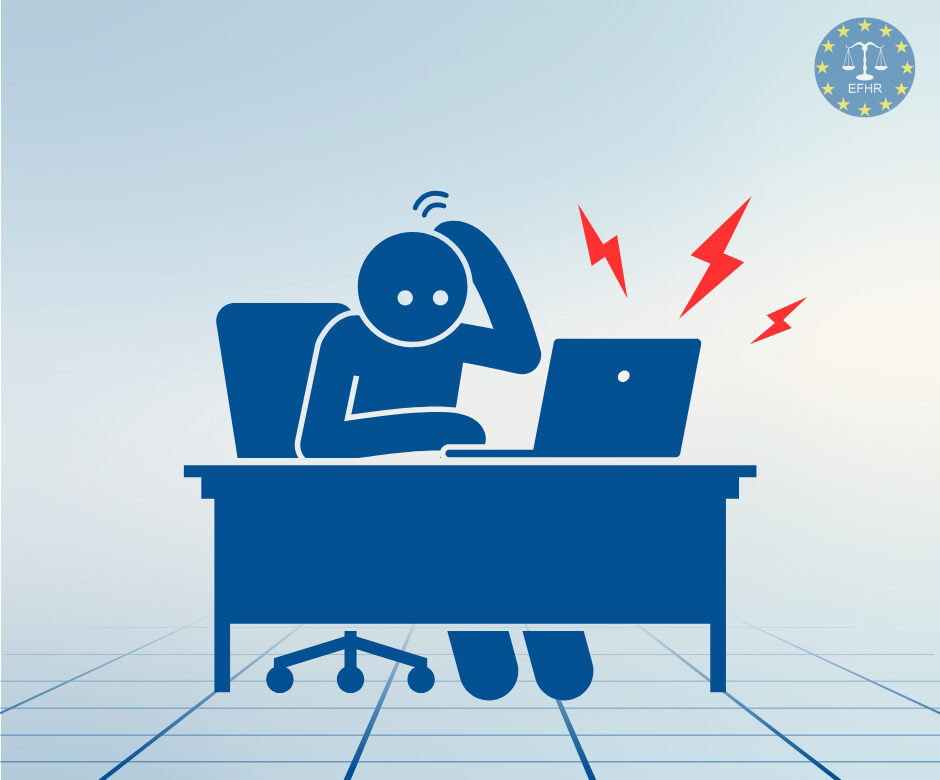- 2011/04/03
Plenipotentiary of Katyn families: Strasbourg is working!
On 19-21th December, tens of people took part in the fourth series of lectures about human rights, which were organized by the Lawyers Association of Polish people in Lithuania, in cooperation with the European Foundation of Human rights. The last lectures this year were led by Dr Ireneusz C. Kamiński, expert of the Council of Europe.
Working instrument – a victim of its own success.
According to dr I.C. Kamiński, the European Convention on Human Rights and Fundamental Freedom is one of the few working law instruments. Why? Many conventions are missing an essential element that is implementation mechanisms. But as Dr Kaminski said, the Convention is at the same time a victim of its own success, because the European Court of Human Rights is simply flooded with complaints: about 150 thousand cases are waiting to be considered (!). Attempts to change the situation on the way of reform are being made. Each of us can make a complaint to the Court, thus each of us can make the Convention’s rules function.
Strasbourg case-law change the law
Until recently it was Poland that complained the most frequently. Strasbourg’s judicial decisions triggered huge, maybe even revolutionary, changes in Polish law and practice. At present, the majority of the complaints filed to the European Court of Human Rights come from Russia (every 3-4 complaint).
“Strasbourg is working”
The speaker emphasized that judicial sentences, penalties, control of the sentences, examining the elimination of the causes of complaints- all together show that “the Strasbourg is working.” “The Court neither forgives nor lets off” – said dr Kamiński. The Court is not satisfied with the fact that the perpetrator only bears the penalty: the Court wants to develop a preventive mechanism, repelling from violating human rights. The European Court of Human Rights in Strasbourg has produced about 15 thousand judgments, which means that each year it adjudges in approximately 1,500 cases.
Complaint of Katyn – one of the most important
Dr. I. C. Kamiński, who is the initiator of the Katyn’s complaint and at the same time is the plenipotentiary of the Katyn families in the proceedings before the European Court of Human Rights in Strasbourg, noted that the complaint of Katyn is one of the most important in the history of the Court. The main problem in the Katyn case is that the law is not retroactive and therefore dr Kamiński, as a lawyer, has decided to use a procedural element by calling into question the course of the Katyn proceedings. Strasbourg’ proceedings concerning the Katyn case are currently in a very advanced stage, thus the first decisions can be expected in 2011. Probably one of the reasons for the proceedings being so efficient and granting the case the priority course is the advanced age of the people who lodged the complaints. He also stressed that Russian statements (procedure is of written character) are highly offensive. It can be illustrated by the important fact that the Katyn massacre is called by the Russian party the “events of Katyn”. Widows of the murdered officers have all the reasons to demand from Russia compensations amounting to tens thousands of Euros. The only thing they demand, however, is… one symbolic euro. Because what is the most important is the truth.
Human rights in practice
During the following meetings, dr Kamiński acquainted the listeners with important and high profile cases, that were recently resolved by the European Court of Human Rights in the field of ownership rights, freedom of religion, life, and marriage as well as the freedom of expression. In his lectures, dr Kamiński emphasized that if human rights in a country are being violated, and if neither authorities nor courts seem to notice those violations, the country should be sued. The European Court of Human Rights is often the last hope and the last resort, to which services we can turn to. It is not an unusual situation, if a citizen is suing his own motherland. It is in fact a normal and commonplace practice in Europe. Only by fighting for our rights can we change the legal situation in our countries. In countries whose citizens continued to complain frequently, the change in the situation of human rights is clearly visible.
“Kurier Wileński”, 29 December, 2010



